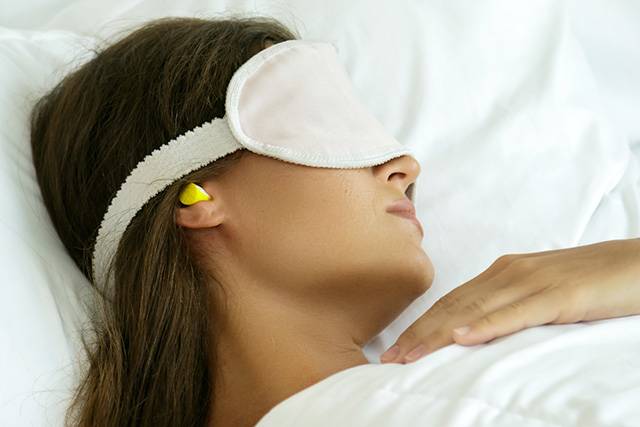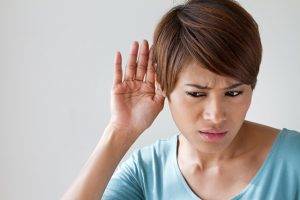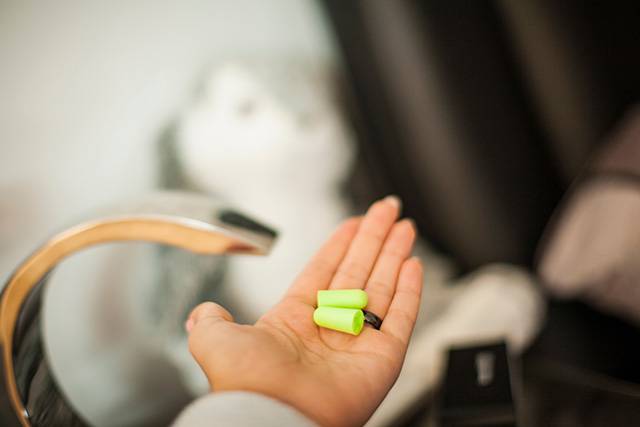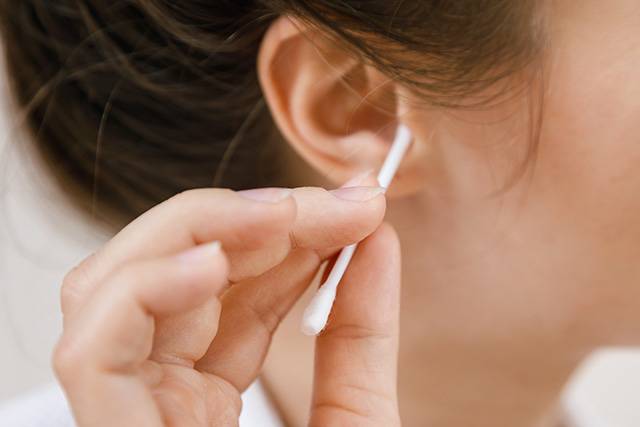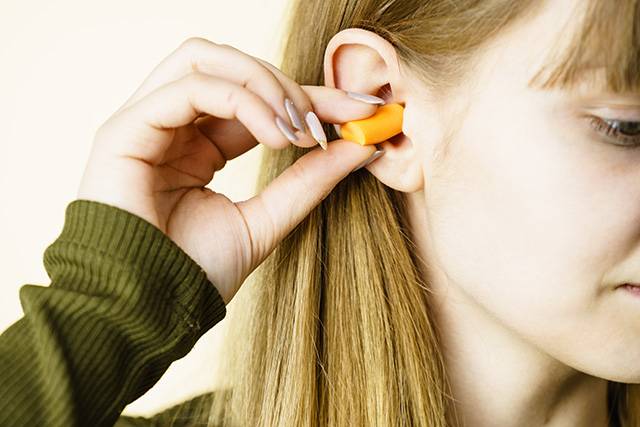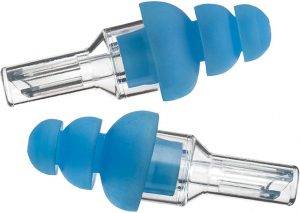
Unfortunately, there is no such thing as completely soundproof ear plugs. They can help muzzle out sounds to a more comfortable hearing level, but they will never completely shut out all noise around you. Louder noises may simply dull down and quiet noises become inaudible.
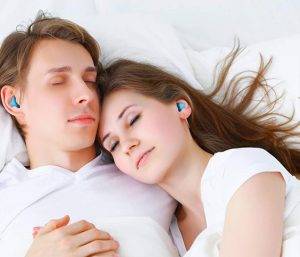
All of this and more will be covered in this article at full so you can understand just exactly what ear plugs can do for you.
You may want to read: Best Earplugs for Sleep: Restful Environment on a Budget
What Kind of Ear Plugs Are There?
There is quite the variety in the market for ear plugs. As it turns out, all kinds of situations call for some peace and quiet sometimes. And as many situations as there are, there are just as many earplugs available. They come in different materials and constructions to fit your preference.
Here are some common materials used when making ear plugs:
Wax Earplugs – These earplugs are best for sleepers and swimmers. They form into the right size and shape in your ear for maximum blockage. This helps keep loud snores and water out of your ears at all times.
Silicone Earplugs – Silicone is a harder material that can become uncomfortable for someone using them when they sleep. They are, however, very good at blocking out noise around them. They are good for the office or on an airplane. There is soft silicone, which resembles wax earplugs, but these do not block out noise as well.Foam Earplugs – Foam earplugs are the cheapest to buy and the easiest to use. Since they are so soft, they are also ideal for any sleeping position. The biggest downfall to foam earplugs is the fact that they are porous, which means they are the ideal residence for bacteria. If you’re using foam earplugs, replace every day or every other day, but don’t wear them more than twice.
- Custom-Made Earplugs – These are the most comfortable for you to use.
You can go to your doctor to get these reusable earplugs made custom for your benefit.Keep an eye on cleaning them regularly and be ready for a bigger price tag.Custom-made earplugs work very well, sometimes so well you could miss an alarm or not hear someone calling you. Be careful when and where you use them.
There are two types of ear plugs you can come across; vented and non-vented ear plugs. All vented ear plugs will have a hole inside of them to help balance out the pressure while in your ear. This comes in handy when you’re flying, but in terms of performance, there’s no difference between sound cancellation.
You may want to check out: Earplugs with Alarms
When Would You Use Ear Plugs?
There are so many situations that call for some peace and quiet. If you work in a busy office where there are always printers running, people walking around, endless chatter, rolling carts, then maybe it’s time to get some silence. Many people come home from work exhausted, even if they weren’t moving around much at all. This is because of all the noise surrounding you, pounding on your ears. It builds up on the stress of the day which tires you out. One way to solve this is to block out all the noise in your office with ear plugs.
Sleeping with a snoring partner can really put you off at night. One great solution to this is to wear earplugs. Your partner can keep snoring, and you can enjoy some peace of mind at night with your ear plugs blocking out all the unwanted noise. You’ll get the sleep you need to wake up fresh and ready for the day.
This is probably one of the better-known situations, but the flights are always the worst, especially when you’re flying economy. There are children, crying babies, snoring passengers, shows and movies playing, it’s all too much. The noise can become unbearable, so imagine a ten-hour flight. The best thing to do for yourself is to shut your eyes, take out your earplugs, and enjoy the rest of your flight.
You may be interested in: Know About Sleeping with Earplugs and Earphones
Is It Safe to Wear Ear Plugs to Sleep?
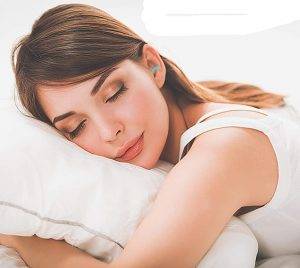
There are actually more benefits to reap from sleeping with ear plugs than there are consequences. The consequences, which will be mentioned later on in the article, are really quite easy to avoid. When you break it down, wearing earplugs to sleep is almost solely an act of fruitful benefits.
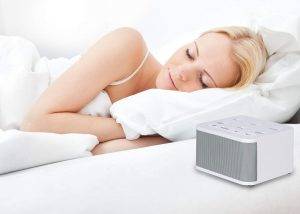
They have been found to increase melatonin levels, a hormone that is always present when your body is preparing itself to go to sleep. Earplugs are also cost-effective.
When earplugs are partnered with eye masks, you can catch rapid eye movement sleep, or REM sleep. This kind of sleep is one of the deepest levels of sleep you can get. It will wake you up fresher and happier than ever, with the right amount of energy you need for the following day. It can even help with memory consolidation when you manage REM sleep.
You might want to read also: How to Soundproof a Bedroom?
Should You Sleep with Earplugs If You Have Tinnitus?
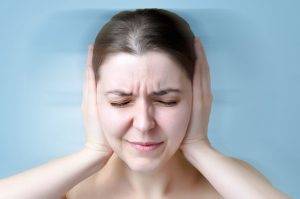
They can also become a cause of tinnitus if you use them too often or if you use dirty ear plugs over and over again. There should be no bacteria or dirt in contact with your ear canal to keep your ears strong and healthy.
Benefits of Wearing Ear Plugs When You Sleep
There is one simple benefit; better sleep. The traffic, stray dogs, your snoring partner, the machines in your room, noisy neighbors, they can all become too much. You may have not noticed it all before, but once you sleep with earplugs in your ears, you’ll really hear the difference. Ear plug earbuds are also an option in this case, because not only can you block out exterior noise that keep you up, you can also soothe yourself to sleep with white noise, music, or a sound machine.
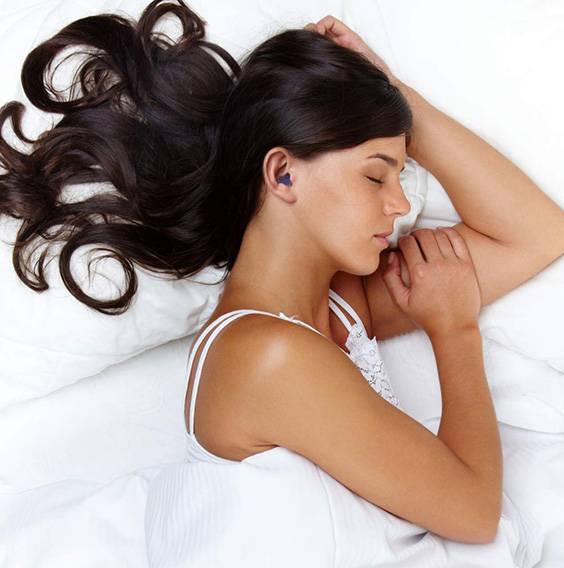
Even if you wake up for a few seconds, your entire night will have been ruined. The worst part is the tiniest noise will wake you up and separate you from your deep sleep. There are a lot of consequences to not getting a fulfilling sleep that you don’t want to risk;
- You could get higher blood pressure if you don’t get consistent sleep at night.
- The chances of you getting a stroke are steadily increasing with each passing night left unfulfilled.
- There is also a greater chance of you developing diabetes.
- Heart attacks become more and more plausible if restless nights are a routine part of your life.
- Obesity is connected to not sleeping properly as well.
- There is also depression and insomnia connected to continuous nights waking up or not sleeping at all.
- Your immunity slowly depreciates while inflammation increases. This can seriously affect your health negatively.
So, while you may be simply enjoying a nice night free of any snoring reverberating in the back of your mind, there are so many more benefits to your health when you sleep with earplugs.
The best part, they are cost effective! Whether it’s a one-time investment to get custom-made earplugs or the constant purchase of foam earplugs, you’ll never reach expense levels as high as aromatherapy oils would or sleep aids.
Negative Side Effects of Wearing Ear Plugs
While earplugs are generally safe, there are some side effects you should keep in mind. It’s better to be aware of them so you can cautiously avoid them.
For one, ear plugs can push back the ear wax in your ear. If you continuously clean your ears every day, you should be fine. Once before you go to sleep and once as soon as you wake up will keep any build-up at bay. But there is still a chance of wax building up, which can lead to a temporary hearing loss until cleaned and tinnitus. There is even the possible chance of bacteria developing in the earwax. If this is the case, then it’s better to consult a doctor to get it properly removed.
Another issue is that bacteria can build up inside of the earplugs which can lead to ear infections. If they are not treated soon enough, there could be complications, such as permanent or even complete hearing loss.
Strong earplugs that block almost everything out can come with their own disadvantages. With how quiet it gets; it can create an overwhelming sense of isolation. For many people, this silence becomes intimidating and amplifies the sound of your heartbeat and rushing blood.
Your ears, more specifically the inner ear, controls your sense of balance. When you have earplugs in while walking or moving in any way, your sense of balance is disrupted which can throw you off, and make you feel dizzy. It’s best to use earplugs when you are idly sitting or sleeping to avoid this as best as possible.
Precautions to Take When Wearing Ear Plugs
There are a couple of dangers to be aware of when you are using earplugs. To avoid them, here are some precautions you can take if you plan on implementing them in your daily schedule.
1. Clean Them or Throw Them
It’s a simple rule to remember. You can either clean your ear plugs or you throw them out. If they are reusable, then try to wash them every or every other day. This will ensure you aren’t replacing ear wax in your ear every time you use your ear plugs. The bacteria won’t build up and you can avoid getting an infection. Of course, there may come a time when your ear plugs are beyond cleaning. In this case, don’t be reluctant to replace them as soon as you can.
If you’re using foam ear plugs, don’t bother using these more than twice. Cleaning them is near impossible and there’s only harm in continuously using them. Bacteria will thrive inside of the foam and create a mess inside your ear which can only get worse unless you check with a doctor and get new ear plugs.
2. Keep an Ear Out for Earwax
Always be cautious about the build-up in your ear. There are many issues that can occur if you allow the wax to build in your ear, which can end in permanent hearing loss.
Clean out your ears properly before you go to sleep, so you’re ear plugs have nothing to press deeper into you ear. You’ll also get rid of everything that built up throughout the day. Clean your ears out in the morning as well to get rid of everything that built up during the night. Also, watch out for your earplugs. If there is any ear wax on them wash it out thoroughly to make sure you’re not putting any ear wax back in when you use them next.
3. Insert Your Ear Plugs Properly
Yes, there is a proper way to wear your ear plugs. And there’s even different ear plug gauges so make sure you get the proper size. Most people leave more than half of the ear plug’s end out, which will create discomfort around your ear. It will also not block out sound as effectively as it should when you place it improperly.
- The first step is to roll the ear plug into a tight tub, so it’s easier to insert into your ear canal.
- The next step is to pull your ear slightly from the top. Pull outwards so the ear canal is open and easy to insert the ear plug into.
- Using a slight turning motion, push the earplugs into your ear canal. You should get most of the ear plug into your ear canal with only the end showing outside of the ear canal. Hold the ear plug with your fingers for a couple of moments. You want the foam to expand so the ear plug doesn’t fall out of your ear.
- Don’t push too hard. If you struggle against the ear plug, take it out, roll it up again, and try once more. You want the ear plug to go into your canal comfortably. At first, you may feel reluctant to place the ear plug too deep into the ear, but ear plugs were made a certain length to comfortably and safely fill your ear canal.
4. Use Ear Plugs Comfortable for You
Always stick with something you are comfortable with. Silicone may not be for you since it’s hard. Even if the performance is better, there is no point in hurting your ear. This can cause other issues that are damaging to your hearing and skin.
If you need ear plugs on an almost daily basis, for example you may need them in your office, then invest in custom earplugs or reusable ear plugs. They may be more expensive, but they are much more comfortable and better at cancelling out loud noises around you.
5. Be Aware of All Feelings in Your Ear
Don’t take for granted the silence you’ve found in your world. As amazing as it may be, there are still precautions you have to keep in mind. If you take out your earplugs but the rest of the world still feels numbed out, feel worried. It may just be an after-effect of wearing the ear plugs for so long, but don’t take that chance. Get your ears checked if you ever feel that your ears are stuffed even without the ear plugs in.
The loss of hearing can lead to other things besides going deaf. It could promote the development of Alzheimer’s and dementia.
You may be interested in: Best Electronic Earplugs: Noise Cancelling Options
Conclusion
Ear plugs are a truly simple invention, just an easy way to block out sound when you need to. All of the benefits to our health and well-being go completely unnoticed. With ear plugs, we avoid loss of hearing in loud, noisy, boisterous environments and keep our hearing strong.
Headaches and stress from daily struggles are avoided almost entirely when you block out the rest of the world for some serene few hours. You can make plane flights, dayshifts, restful nights, travels and more a breeze when you equip yourself with some quality ear plugs.
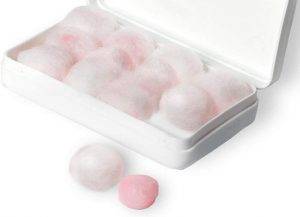 Wax Earplugs – These earplugs are best for sleepers and
Wax Earplugs – These earplugs are best for sleepers and 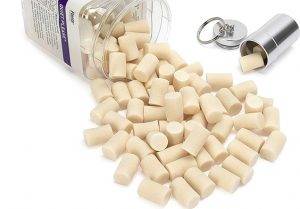 Foam Earplugs –
Foam Earplugs – 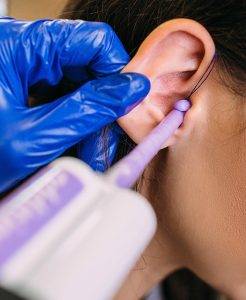 You can go to your doctor to get these reusable earplugs made custom for your benefit.Keep an eye on cleaning them regularly and be ready for a bigger price tag.Custom-made earplugs work very well, sometimes so well you could miss an alarm or not hear someone calling you. Be careful when and where you use them.
You can go to your doctor to get these reusable earplugs made custom for your benefit.Keep an eye on cleaning them regularly and be ready for a bigger price tag.Custom-made earplugs work very well, sometimes so well you could miss an alarm or not hear someone calling you. Be careful when and where you use them.
